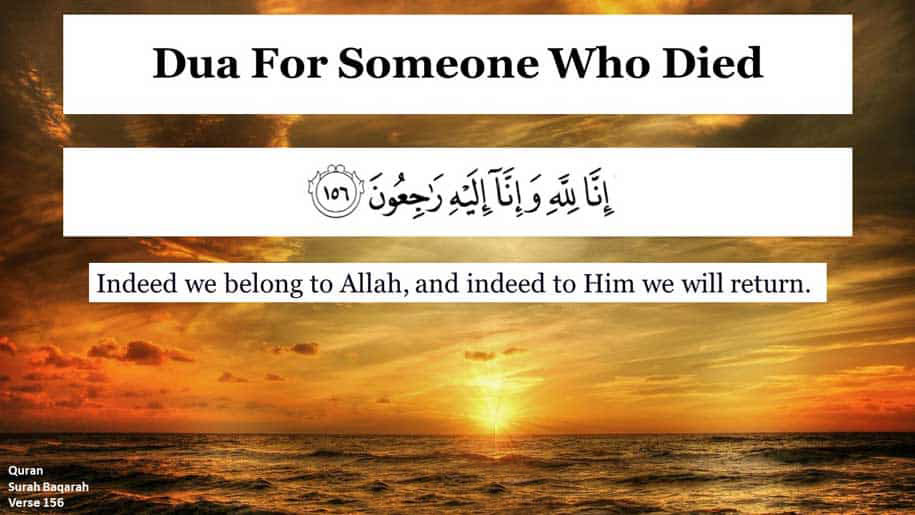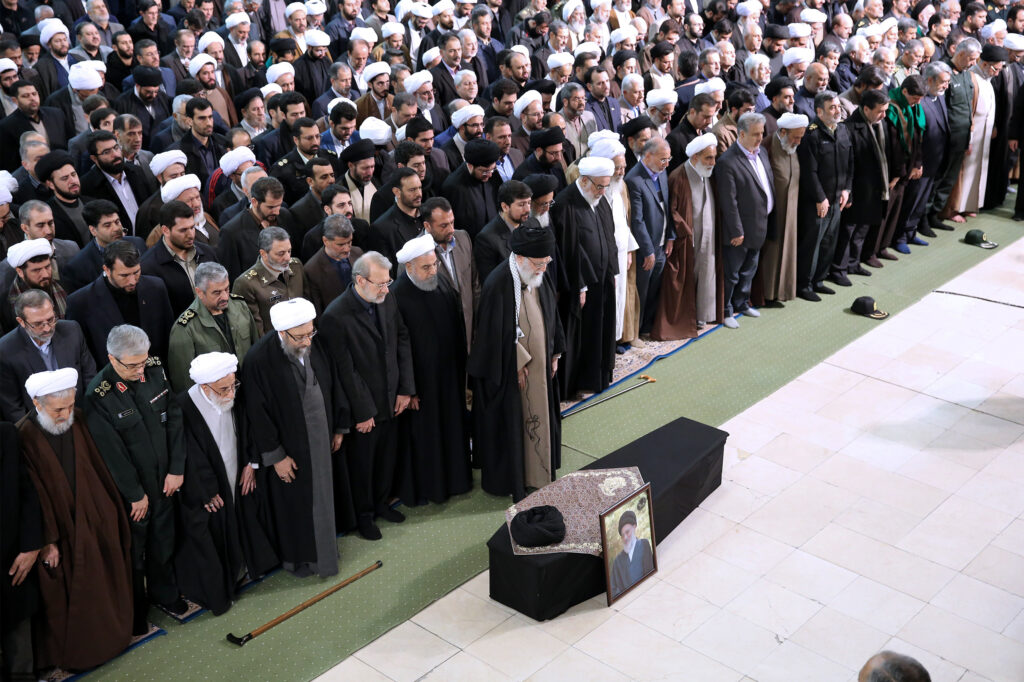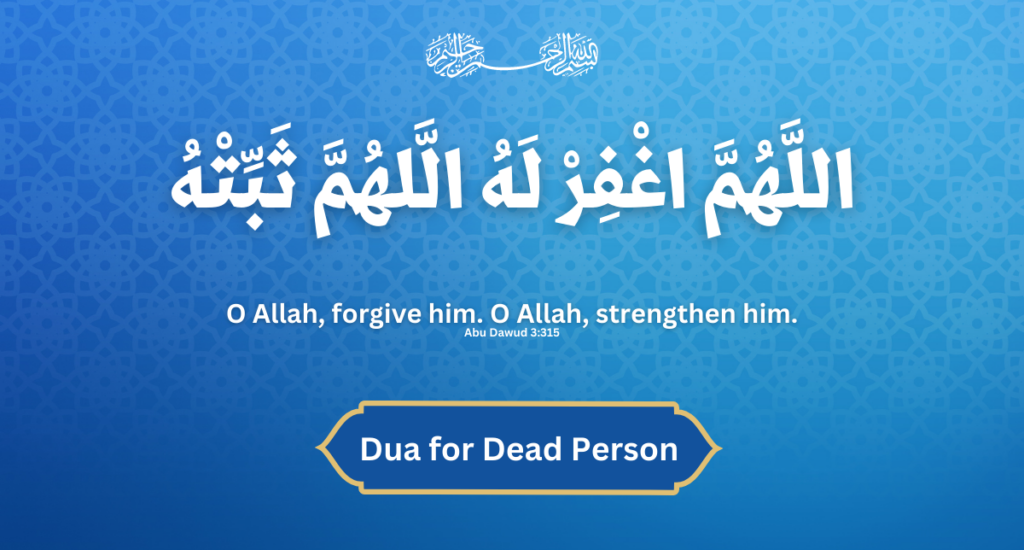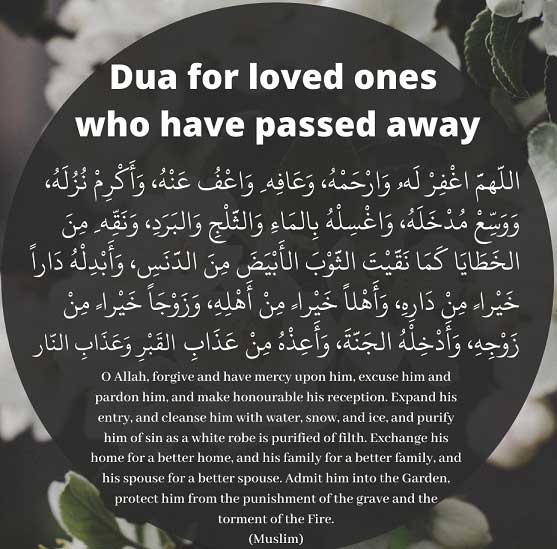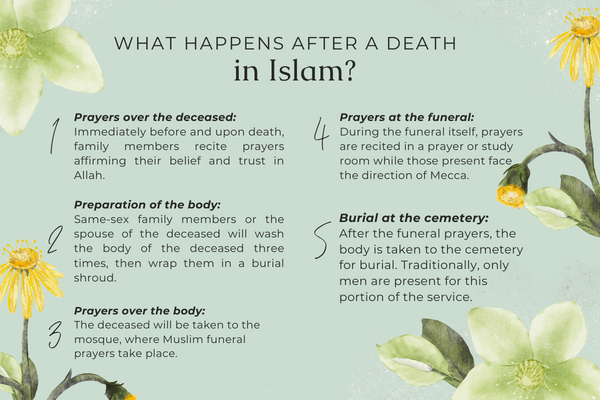“Death is an inevitable part of life, and in Islam, it carries profound significance. When someone passes away, offering the right words and support is crucial. In this article, we explore the appropriate dua (supplications), messages, and tips to navigate this sensitive and essential aspect of Islamic tradition and culture.”
Table of Contents
Islamic Perspective on Death
In Islam, death is viewed as a natural and inevitable part of the human experience, a passage from this temporary life to the eternal hereafter. This perspective is shaped by the teachings of the Quran and the Hadith (sayings and actions of the Prophet Muhammad, peace be upon him) and is characterized by several key beliefs and principles:
- Submission to Allah’s Will: Central to the Islamic perspective on death is the concept of submission to the will of Allah (God). Muslims believe that death is a divine decree, and it is Allah who determines the time and circumstances of an individual’s passing. This belief helps believers find solace in the face of death, understanding that it is a part of the divine plan.
- The Transition to the Hereafter: Muslims believe that death is a transition to the hereafter, which consists of the Day of Judgment and the eternal life in either paradise (Jannah) or hell (Jahannam). One’s actions in this world are believed to have a direct impact on their status in the afterlife.
- Preparation for the Hereafter: The Islamic perspective on death emphasizes the importance of leading a righteous and pious life. Believers are encouraged to engage in acts of worship, charity, and good deeds, as these will be beneficial in the afterlife. This understanding of the afterlife motivates Muslims to live a life in accordance with Islamic principles.
- The Journey of the Soul: According to Islamic belief, when a person dies, their soul leaves the physical body and embarks on a journey. The soul is believed to be received by angels who will question the deceased about their faith and deeds. This period between death and the Day of Judgment is seen as a critical phase, where individuals await their ultimate destiny.
- Respect for the Deceased: Islam places great emphasis on treating the deceased with respect and dignity. This includes performing the ritual washing of the deceased’s body (Ghusl) and shrouding them in a simple white cloth (Kafan). The funeral prayer (Salat al-Janazah) is conducted to seek forgiveness and blessings for the departed soul.
Understanding the Islamic perspective on death is crucial in comprehending the significance of the rituals and customs associated with death in Islam. It also helps to appreciate the profound sense of purpose and responsibility that underlies the way Muslims respond to the passing of a loved one. In the subsequent sections of this article, we will delve deeper into the specific customs and practices that are part of the mourning and grieving process in Islam.
Islamic Funeral Etiquette
Funeral customs in Islam are guided by a deep sense of reverence for the deceased, the importance of community support, and adherence to religious rituals. Understanding the etiquette surrounding Islamic funerals is essential for both Muslims and those from other cultures who wish to show respect and support to grieving families.
- Prompt Burial: One of the key principles in Islamic funeral etiquette is the prompt burial of the deceased. The deceased should ideally be buried as soon as possible after death, often on the same day, to honor the Islamic belief in the sanctity of the body and to fulfill the deceased’s right to a swift and respectful burial.
- Ghusl (Ritual Washing): Before burial, the body of the deceased undergoes a ritual washing known as “Ghusl.” This is typically performed by close family members or individuals with expertise in the procedure. It is a respectful and spiritually significant act that cleanses the body and prepares it for the afterlife.
- Kafan (Shrouding): The deceased is wrapped in a simple white shroud, known as “Kafan,” before burial. The use of a plain white shroud symbolizes the equality of all before Allah and the simplicity of the burial process.
- Salat al-Janazah (Funeral Prayer): A collective funeral prayer, “Salat al-Janazah,” is offered for the deceased. This prayer is an essential part of the funeral process, and it seeks Allah’s forgiveness and blessings for the departed soul. It can be performed at the mosque, a designated prayer area, or even at the graveside.
- Bearing the Coffin: In some cultures, it is customary for the men of the community to carry the deceased’s coffin to the burial site. This is considered an honor and a way to express solidarity with the grieving family.
- Grave Orientation: Islamic tradition dictates that the deceased should be buried with their right side facing the qibla (the direction of the Kaaba in Mecca). This is seen as a symbol of submission to Allah’s will.
- Mourning Period: Mourning in Islam is observed, but it is typically not extravagant or prolonged. The family and friends of the deceased may observe a mourning period, often three days, during which they receive condolences and remember the departed through prayers and remembrances.
- Condolence Visits: Friends and community members are encouraged to visit the grieving family to offer condolences and support. Sharing words of comfort and offering help with daily tasks is a common practice.
- Reciting Quranic Verses: Reading Quranic verses, especially those related to death and the afterlife, is a way to seek solace and reflect upon the deceased’s journey.
- Charitable Acts (Sadaqah): It is common to give to charity (Sadaqah) on behalf of the deceased as an act of goodwill and to earn blessings for the departed soul.
Understanding and respecting these funeral etiquettes is essential to showing sensitivity and support to grieving Muslim families during their time of loss. It also reflects the cultural and religious significance of these rituals in the Islamic tradition.
Dua (Supplications) for the Deceased
In Islam, dua (supplication) plays a central role in seeking Allah’s mercy, forgiveness, and blessings for the deceased. These prayers are a way for the living to express their love and concern for the departed soul and to ask for Allah’s mercy and forgiveness. Here are some common dua for the deceased:
- Dua for Forgiveness (Dua Maghfirah): Muslims often pray for the deceased’s forgiveness, acknowledging that only Allah can truly pardon their sins. This includes asking Allah to forgive their worldly mistakes and grant them a peaceful place in the afterlife.
- Dua for a Good Ending (Husn al-Khatimah): Believers pray that the deceased had a good ending, meaning that they died with faith and submission to Allah. This supplication asks for a positive evaluation of their life and deeds in the afterlife.
- Dua for Elevation of Status in the Hereafter: It’s common to pray for the elevation of the deceased’s status in paradise, asking Allah to grant them a high rank and a place in the company of the righteous.
- Dua for Relief from the Punishment of the Grave (Dua Istighfar al-Qabr): Muslims believe that the deceased will be questioned in the grave. This supplication asks Allah to grant them ease and comfort during this phase and protect them from any punishment.
- Dua for Mercy and Compassion: This prayer asks for Allah’s mercy and compassion to envelop the deceased, making their journey through the afterlife smooth and peaceful.
- Dua for a Light in the Grave: Believers pray for a light to shine in the deceased’s grave, signifying divine guidance and blessings.
- Dua for the Family: Muslims often pray for the patience and strength of the deceased’s family, asking Allah to ease their grief and grant them the reward of their patience.
- General Supplications: In addition to specific dua, it is also common to offer general supplications for the deceased, expressing love and remembrance. These can be personal prayers or recitation of Quranic verses.
These supplications are a source of comfort and hope for grieving family and friends. They serve as a way to continue to benefit the deceased through acts of devotion and prayer even after their passing. Dua is a powerful expression of love and care for the departed and a way to fulfill the communal and individual responsibility of seeking Allah’s mercy and blessings for the deceased’s soul.
Supportive Messages for the Bereaved
Offering words of comfort and sympathy to those who are grieving is an essential aspect of providing emotional support. When expressing condolences to bereaved Muslims, it’s important to be sensitive to their beliefs and cultural practices. Here are some supportive messages that can provide solace and show your compassion:
- “May Allah grant your loved one a peaceful journey to the afterlife and shower them with His mercy and blessings.”
- “I am deeply sorry for your loss. May Allah grant you and your family the strength to endure this difficult time.”
- **”Inna lillahi wa inna ilayhi raji’un (إِنَّا لِلّهِ وَإِنَّـا إِلَيْهِ رَاجِعونَ). We belong to Allah, and to Him, we shall return. Your loved one is in a better place now, and our prayers are with you.”
- **”Please accept my heartfelt condolences. Your loved one’s legacy will live on in the hearts of those who knew them.”
- **”During this time of sorrow, know that you are not alone. Your community stands with you, and we are here to support you in any way you need.”
- **”Grief is a natural response to loss. Take the time you need to mourn, and remember that your friends and family are here to provide comfort and assistance.”
- **”Your loved one’s memory will forever be cherished. Their good deeds and kindness have left a lasting impact on all of us.”
- **”In this difficult time, remember that Allah is the Most Merciful and Compassionate. He will provide you with the strength to carry on.”
- **”We pray that Allah grants your family patience and healing during this time of loss.”
- **”May your loved one’s soul rest in peace and their legacy continue to inspire and bring blessings to all of us.”
It’s important to note that Muslims often appreciate supportive messages that acknowledge their faith and express understanding of Islamic customs and beliefs. These messages convey both empathy and respect for their cultural and religious traditions, helping to provide comfort and solace during a period of mourning.
Practical Tips for Dealing with Grief
Grief is a complex and deeply personal experience, and in the Islamic context, it is often viewed as a natural response to loss, but also as a test of faith. Here are some practical tips to help individuals and families navigate the grieving process:
- Seek Support from Your Community: Lean on your friends, family, and the Muslim community for emotional support. Talking to others who share your faith and cultural background can be particularly comforting.
- Turn to Faith and Prayer: Engage in regular prayer and supplication. Deepening your connection with Allah during times of grief can provide a sense of solace and spiritual strength.
- Consult with a Religious Leader or Scholar: If you are struggling to cope with grief or have questions about the Islamic perspective on loss, consider seeking guidance from a knowledgeable religious leader or scholar who can provide spiritual counsel.
- Practice Self-Care: Take care of your physical and emotional well-being. Ensure you are eating healthily, getting enough rest, and staying physically active. Grief can take a toll on your body, so self-care is essential.
- Join Support Groups: Consider joining grief support groups, either in person or online, where you can connect with others who have experienced loss. These groups offer a safe space to share your feelings and gain insights from others.
- Express Your Feelings: Don’t bottle up your emotions. It’s perfectly normal to feel a range of emotions, including sadness, anger, and confusion. Expressing these feelings to a trusted friend, family member, or counselor can be therapeutic.
- Memorialize Your Loved One: Create a memorial or engage in acts of charity and good deeds in memory of your loved one. Doing something positive in their name can be a source of comfort.
- Maintain Routine and Structure: Try to maintain a daily routine. Familiar schedules and habits can provide a sense of stability during a turbulent time.
- Educate Yourself: Learn more about the grieving process and the Islamic perspective on loss. Understanding the spiritual and cultural aspects of grief can help you navigate the journey more effectively.
- Be Patient with Yourself: Grief is not something that can be hurried or forced. Everyone’s grief journey is unique, and it’s important to be patient and gentle with yourself as you navigate the ups and downs of mourning.
- Consider Professional Help: If you find that your grief is overwhelming and affecting your daily life, it may be beneficial to seek the assistance of a grief counselor or therapist who is sensitive to Islamic and cultural beliefs.
Remember that grief is a natural and highly individual process. There is no right or wrong way to grieve, and it may take time to come to terms with your loss. In the Islamic context, the faith and the support of your community play a significant role in helping you navigate the complexities of grief.
Community Involvement and Responsibilities
In Islam, the concept of community and the collective responsibility of its members play a vital role, especially during times of bereavement. When someone within the Muslim community experiences a loss, there is a collective response that reflects the shared bonds of faith and compassion. Here’s how community involvement and responsibilities manifest during times of grief:
- Funeral Assistance: One of the primary roles of the Muslim community during a death is to provide practical support to the grieving family. This includes helping with the logistics of the funeral, from washing and shrouding the deceased to arranging for the burial and offering transportation and support for the family.
- Providing Meals: It is customary for community members to offer food and meals to the bereaved family. This helps ease the immediate burden of daily tasks and provides comfort during a challenging time.
- Collective Prayers: The funeral prayer (Salat al-Janazah) is a collective act of worship in which the community comes together to pray for the deceased. This prayer expresses solidarity, empathy, and spiritual support for the grieving family.
- Visitation and Condolences: Friends, family, and community members visit the grieving family to offer condolences and express their support. This is a way to share in the grief, provide comfort, and offer prayers for the deceased.
- Providing Financial Assistance: The community may organize fundraising or financial support for the family to help with funeral expenses or any immediate financial needs that may arise due to the loss.
- Emotional Support: Grief can be overwhelming, and the community offers emotional support through understanding and listening. Simply being there to lend an ear and a shoulder to lean on can make a significant difference.
- Prayers and Supplications: Many community members will continue to pray for the deceased and their family long after the funeral, offering dua (supplications) for the departed and their family’s well-being.
- Assistance with Daily Tasks: Grieving family members may find it challenging to manage their daily responsibilities. The community can step in to help with tasks such as cooking, cleaning, childcare, and other essential activities.
- Continued Friendship: Community involvement extends beyond the immediate aftermath of the funeral. Friends and community members continue to provide companionship and support in the weeks and months that follow.
- Spiritual Guidance: Religious leaders and scholars within the community may offer guidance, counseling, and spiritual support to help the grieving family come to terms with their loss and seek solace in their faith.
In Islam, this sense of community involvement and shared responsibility is deeply ingrained, and it helps to reinforce the bonds of brotherhood and sisterhood among believers. It underscores the importance of collective support and empathy in times of sorrow, ultimately providing a strong foundation for those who are grieving to cope with their loss and find strength in their faith.
Cultural and Regional Variations
While the core Islamic principles and beliefs about death and grieving remain consistent, there are notable cultural and regional variations in the way these principles are practiced and expressed. These differences can be influenced by factors such as local customs, historical traditions, and cultural norms. Here are some examples of cultural and regional variations in the context of Islamic funerals and mourning:
- Funeral Practices: The specific rituals and customs associated with Islamic funerals can vary from one region to another. For example, the method of preparing the body (Ghusl) and the style of shrouding (Kafan) can differ based on cultural traditions.
- Burial Customs: The burial process can vary, with some regions having specific customs related to grave digging, burial depth, and even the materials used for the grave marker.
- Mourning Period: The length and intensity of the mourning period can vary. While some Muslim communities observe a three-day mourning period, others may extend it for a longer duration.
- Dress Code: The attire worn during mourning and funerals may differ among cultures. Some regions have specific dress codes or traditional clothing for such occasions.
- Condolences: The way condolences are expressed can vary. While the phrase “Inna lillahi wa inna ilayhi raji’un” is universal, additional customs, greetings, and gestures of sympathy may differ.
- Memorial Services: In some regions, commemorative events and memorial services are common, while in others, these may not be widely practiced.
- Foods and Meals: The type of food and meals provided to the grieving family and guests can vary, reflecting local culinary traditions.
- Charitable Acts: Acts of charity (Sadaqah) performed in memory of the deceased may vary in form and practice, depending on local customs.
- Visitation Traditions: The practice of visiting the grieving family and the frequency of visits can vary among different communities.
- Prayers and Duas: While there are universal Islamic supplications, regional customs may lead to variations in the specific duas and Quranic verses recited during mourning.
- Public Mourning: In some cultures, public displays of mourning, such as processions or public gatherings, are common, while in others, private family gatherings are the norm.
- Gender Separation: The extent of gender separation during mourning and funerals can vary, with some regions being more conservative than others.
It’s important to recognize and respect these cultural and regional variations when providing support to grieving individuals and families within the Islamic community. Being aware of these differences and adapting your actions and expressions of sympathy accordingly can demonstrate cultural sensitivity and consideration during times of mourning.
Conclusion
In times of loss, the Islamic approach to death and mourning reflects a profound connection between faith, community, and compassion. Understanding the importance of dua, the customs of Islamic funerals, and the cultural variations within the Muslim world is crucial to providing support and solace during moments of grief. In the spirit of unity and empathy, these practices and principles serve as a source of comfort, guidance, and resilience for those who mourn and those who stand by them in their time of need.

